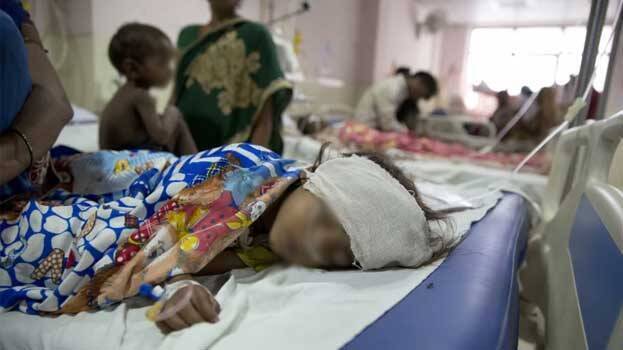In a concerning turn of events, over a dozen Thalassemic children undergoing blood transfusions at Lala Lajpat Rai Hospital (LLRH) in Kanpur have tested positive for infections, including Hepatitis B, Hepatitis C, and HIV, during routine screenings. The revelation has sparked controversy and a call for an investigation, raising questions about the safety of blood transfusions and the overall healthcare protocols in place.
The situation escalated when Dr Arun Arya, head of the paediatrics department at LLRH and nodal officer for the centre, claimed that 14 children had been found infected with various viruses during routine screening. Of these, seven tested positive for Hepatitis B, five for Hepatitis C, and two for HIV. The affected children hail from different districts, adding to the complexity of the issue.
However, the Principal of Ganesh Shankar Vidyarthi Medical College (GSVM), Dr. Sanjay Kala, contradicted these claims, stating that no such cases were reported after 2019. Dr. Kala, in a press conference, recommended action against Dr. Arya, asserting that he was not authorized to share such information with the media. Dr. Kala also denied that the infected children received blood transfusions at LLRH.
Official Response and Investigation: Following the revelation, Uttar Pradesh Deputy Chief Minister and State Health Minister Brajesh Pathak ordered a high-level probe into the incident. Currently, 180 Thalassemia patients receive blood transfusions at LLRH, which conducts screenings for viral diseases every six months.
The 14 affected children, aged between 6 and 16, are part of the regular screening process at LLRH. They had previously received blood transfusions at private and district hospitals, and in some urgent cases, locally. Dr Arya suggested that the source of infection might be the donated blood that wasn't adequately tested for viruses.
Dr Kala asserted that every Thalassemic patient undergoes mandatory screening at LLRH and emphasized that no patient with HIV or hepatitis infection had been found since 2019. He claimed that previous cases of infections in Thalassemia patients were linked to transfusions done at other hospitals.
The LLRH officials had earlier indicated that the issue might stem from donated blood that wasn't adequately tested. Dr Arya suggested that blood transfusions during the "window period," where the virus might not be detectable in tests, could be a contributing factor. He recommended vaccination against Hepatitis B at the time of transfusion.
The incident has become a political flashpoint, with leaders like Akhilesh Yadav and Mallikarjun Kharge criticizing the UP government. The situation highlights the intersection of healthcare crises and political scrutiny, demanding a thorough investigation and swift corrective actions.
As the investigation unfolds, the focus remains on ensuring the safety of blood transfusions, identifying the source of infections, and implementing measures to prevent such incidents in the future. The well-being of Thalassemic children and the broader community's confidence in healthcare practices are at the forefront of this challenging situation.

 Following the revelation, Uttar Pradesh Deputy Chief Minister and State Health Minister Brajesh Pathak ordered a high-level probe into the incident. Currently, 180 Thalassemia patients receive blood transfusions at LLRH, which conducts screenings for viral diseases every six months.
Following the revelation, Uttar Pradesh Deputy Chief Minister and State Health Minister Brajesh Pathak ordered a high-level probe into the incident. Currently, 180 Thalassemia patients receive blood transfusions at LLRH, which conducts screenings for viral diseases every six months.










.jpeg)

.jpeg)
.jpeg)

.jpeg)


.jpeg)



.jpeg)
.jpeg)
.jpeg)


.jpg)


.jpeg)
.jpeg)